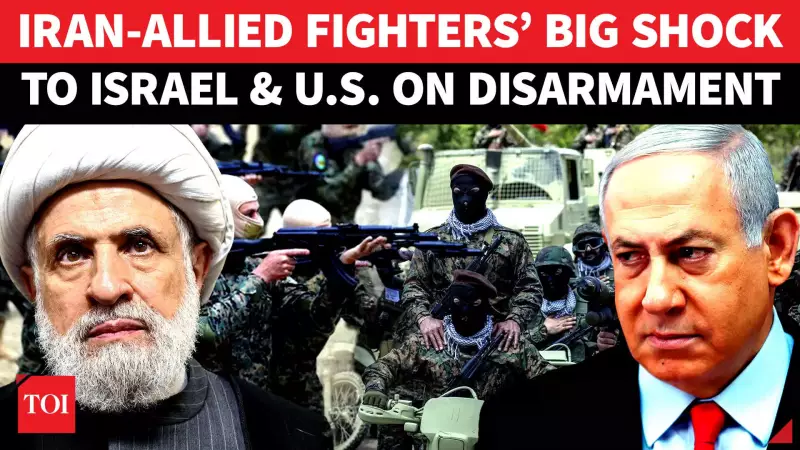
In a defiant speech delivered in Beirut, Hezbollah's deputy leader Sheikh Naim Qassem has firmly rejected demands from the United States and Israel for the militant group to disarm. The declaration comes amid escalating violence along the Lebanon-Israel border and growing concerns about a wider regional conflict.
Hezbollah's Defiant Stance
Sheikh Naim Qassem made his position clear during his address on November 12, 2025, stating that Hezbollah would never surrender its weapons despite increasing international pressure. The senior leader accused Israel of repeatedly violating the ceasefire agreement that was established in November 2024 and attempting to dominate Lebanon both politically and militarily.
Qassem emphasized that Hezbollah has consistently complied with the terms of the November 2024 ceasefire agreement. He pointed to Israel's failure to seize additional territory as evidence of what he called the "resilience and strength" of Hezbollah fighters. His remarks highlighted the group's determination to maintain its military capabilities as what it considers essential for Lebanon's defense.
Escalating Violence and Regional Implications
The political declarations coincided with renewed military action as Israeli airstrikes targeted several towns in southern Lebanon. The attacks resulted in the death of a Hezbollah commander, further intensifying the already volatile situation. This development represents a significant escalation in the ongoing conflict between the two sides.
Meanwhile, reports emerging from Israel indicate that the country is facing significant troop shortages amid growing fears of an expanded war with Lebanon. The combination of military casualties and resource constraints has created a complex challenge for Israeli defense planners as they navigate the escalating tensions.
Broader Regional Context
The situation in Lebanon reflects the increasingly unstable security environment across the Middle East. Tensions have been rising sharply throughout the region, with multiple conflict zones experiencing intensified violence. The Hezbollah-Israel confrontation represents one of the most potentially explosive flashpoints in this broader pattern of regional instability.
As both sides continue their military posturing and political rhetoric, the international community watches with growing concern. The rejection of disarmament demands by Hezbollah, combined with ongoing military operations, suggests that a peaceful resolution remains elusive in the immediate future.





